- Home
- Harry Harrison
In Our Hands the Stars Page 2
In Our Hands the Stars Read online
Page 2
“Is it that important?” Arnie asked, turning about, hands jammed deep into the pockets of the white laboratory coat.
There were smears of grease on the sleeve and a brown-rimmed hole in the cuff where a soldering iron had burned through.
“I’m afraid it is. Your Israeli associates are very anxious to find out what happened to you. I understand they traced your movements through a cab driver. They have discovered that you flew by SAS to Belfast—but that you never arrived there. Since the only stopover was here in Copenhagen it was rather hard to conceal your whereabouts. Though I hear that the airport people did give them a very hard time for a while.”
“That Lieutenant Jørgensen must have earned his salary.”
“He did indeed. He was so bullheaded that there was almost an international incident before the Minister of State admitted that you were here. Now they insist upon talking to you.”
“Why? I am a free man. I can go where I please.”
“Tell them that. Dark hints about kidnapping have been dropped …”
“What! Do they think that the Danes are Arabs or something like that?”
Ove laughed and twisted about in his chair as Arnie stamped over and stood before the desk.
“No, nothing like that,” he said. “They know-unofficially of course-that you came here voluntarily and that you are unharmed. But they are very curious as to why you have come here, and they are not going to go away until they have some answers. There is an official commission right now in the Royal Hotel. They say they will make a statement to the press if they don’t see you.”
“I do not want that to happen,” Arnie said, worried now. “None of us does. Which is why they want you to meet the Israelis and tell them that you are doing fine and they can take the next flight out. You don’t have to tell them any more than that.”
“I do not want to tell them any more than that. Who have they sent?”
“Four people, but I think three of them are just yes men. I was with them most of the morning, and the only one who really mattered was a General Gev …”
“Good God! Not him.”
“You know him?”
“Entirely too well. And he knows me. I would rather talk to anyone else.”
“I’m afraid you’re not getting that chance. Gev is outside right now waiting to see you. If he doesn’t talk to you he says he is going straight to the press.”
“You can believe him. He learned his fighting in the desert. The best defense is a good offense. You had better show him in here and get it over with. But don’t leave me alone with him for more than fifteen minutes. Any more than that and you may find that he has talked me into going back with him.”
“I doubt that.” Ove stood and pointed to his chair. “Sit here and keep the desk between you. It gives one a feeling of power. Then he’ll have to sit on my student-chair there, which is hard as flint.”
“If it were a cactus he would not mind,” Arnie said, depressed. “You do not know him the way I do.”
There was silence after the door closed. An occasional shout from the students outside penetrated the double glass window, but only faintly. Inside the room the ticking of the tall Bornholm clock could be clearly heard. Arnie stared, unseeing, at his folded hands on the desk before him and wondered what to do about Gev. He had to tell him as little as possible.
“It’s a long distance to Tel-Aviv,” a voice said in guttural Hebrew and Arnie looked up, blinking, to see that Gev was already inside the room and had closed the door behind him. He was in civilian clothes but wore them, straight-backed, like a uniform. His face was tanned, lined, dark as walnut: the long scar that cut down his cheek from his forehead pulled the corner of his mouth into a perpetual half-grin. “Come in, Avri, come in. Sit down.”
Gev ignored the invitation, stamping across the room, on parade, to stand over Arnie, scowling down at him as though he had been inspected and found wanting.
“I’ve come to take you home, Arnie. You are one of our leading scientists and your country needs you.”
There was no vacillation, no appeal to Arnie’s emotions, to his friends or relations. General Gev had issued an order, in the same voice that had commanded the tanks, the jets, the soldiers into combat. He was to be obeyed. Arnie almost rose from his chair and followed him out, so positive was the command. Yet he only stirred uncomfortably in the chair. His decision had been made and nothing could be done about it. “I am sorry, Avri. I am here and I am going to stay here.” Gev stood, glowering down on him, his arms at his sides but his fingers were curved, as though ready to reach out and grasp and pull Arnie bodily to his feet. Then, in instant decision, he turned and sat down in the waiting chair and crossed his legs. His frontal assault had been repulsed: he turned the flank and prepared to attack in a more vulnerable area. Never taking his eyes from Arnie he took a vulgarly large gold cigarette case from his pocket and snapped it open. The flag of the United Arab Republic was set into the case in enamel, the two green stars picked out with emeralds. A bullet hole punched neatly through the case.
“There was an explosion in your laboratory,” Gev said. “We were concerned. At first we thought you were dead, then injured-then kidnapped. Your friends have been very concerned …”
“I did not mean them to be.”
“… and not only your friends, your government. You are an Israeli, and the work you do is for Israel. A file is missing. Your work has been stolen from your country.”
Gev lighted a cigarette and drew deeply on it, cupping the burning end in his hand, automatically, the way a soldier does. His eyes never left Arnie’s face and his own face was as expressionless as a mask, with only those accusing eyes peering through. Arnie opened his hands wide in a futile gesture, then clasped them before him once again.
“The work has not been stolen. It is my work and I took it with me when I left. When I left voluntarily, to come here. I am sorry that you … think ill of me. But I did what I had to do.”
“What was this work?” The question was cold and sharp, and cut deep.
“It was … my work.” Arnie felt outmaneuvered. outfought, and could only retreat into silence.
“Come now, Arnie. That’s not quite good enough. You are a physicist and your work has to do with physics. You had no explosives, yet you managed to blow up some thousands of pounds worth of equipment. What have you invented?” The silence lengthened, and Arnie could only stare miserably at his clenched hands, his knuckles whitening with the pressure. Gev’s words pulled at him, relentlessly.
“What is this silence? You can’t be afraid? You have nothing to fear from Eretz Israel, your homeland. Your friends, your work, your very life is there. You buried your wife there. Tell us what is wrong and we will help you. Come to us and we will aid you.”
Arnie’s words fell like cold stones into the silence.
“I … cannot.”
“You have to. You have no other choice. You are an Israeli and your work is Israeli. We are surrounded by an ocean of enemies and every man, every scrap of material is vital for our existence. You have discovered something powerful, something that will aid our survival. Would you remove it and see us all perish—the cities and the synagogues leveled to be a desert again? Is that what you want?”
“You know that I do not! Gev, let me be, get out of hen and go back …”
“That I won’t do. I won’t let you be. If I am the voice of your conscience, so be it. Come home. We will welcome you. Help us as we helped you.”
“No! That is the thing I cannot do!” The words were pulled from his body, a gasp of pain. He went on quickly, as though the dam to .his feelings had been broken and he could not stop.
“I have discovered something—I will not tell you how, why, what it is-a force. Call it a force, something that is perhaps more powerful, or could be more powerful than anything we know today. A force that can be used for good or evil because it is by nature that sort of thing, if I can develop it, and I think I can. I want
it used for good-”
“Israel is evil! You dare suggest that?”
“No, hear me out, I did not say that. I mean only that Israel is the pawn of the world with no one on their side. Oil. The Arabs have the oil, and the Soviets and the Americans want it and will play any dirty game to get it. No one cares for Israel, except the Arabs who wish to see her destroyed, and the world powers who also wish they could find a way to destroy her quietly, the thorn in their sides. Oil. War will come, something will happen, and if you have my—if you had this, what we are talking about, it would be used for destruction. You would use it, with tears in your eyes perhaps, but you would use it—and that would be absolute evil.”
“Then,” General Gev said, in a voice so low it was scarcely audible, “from pride, personal ambition, you will withhold this force and see your country perish? In your supreme egocentricity you think yourself more fit to make major policy decisions than the elected representatives of the people. You place yourself on a pillar. You are unique. Better able to decide the important issues than all the lesser mortals of the world. You must believe in absolute tyranny—your tyranny. In your arrogance you become a little Hitler …”
“Shut up!” Arnie shouted hoarsely, half rising from the chair. There was silence. He sat down again, slowly, aware that his face was flushed, a pulse hammering like a rivet gun in his temple. It took a great effort to speak calmly.
“All right. You are correct in what you say. If you wish to say that I no longer believe in democracy, say it. In this matter I don’t. I have made the decision and the responsibility is mine alone. To myself, perhaps as an excuse, I prefer to think of it as a humane act …”
“Mercy killing is also humane,” Gev said in a toneless voice. “You are right, of course. I have no excuses. I have acted willfully and I accept the responsibility.”
“Even if Israel is destroyed through your arrogance?”
Arnie opened his mouth to answer, but there were no words. What could be said? Gev had him hemmed in from all sides, his retreat was cut off, his defenses destroyed. What could he do other than surrender? All that remained was the persistent conviction that, in the long run, he was doing the right thing. A conviction that he was afraid to test or examine lest it prove false as well. The silence grew and grew and a great sadness pushed down on Arnie so that he slumped in his chair.
“I do what I have to do,” he said, finally, in a voice hoarse with emotion. “I will not return. I have left Israel as I came, voluntarily. You have no hold on me, Gev, no hold….” General Gev stood up, looking down upon the bowed head. His words were slow in coming and when he did speak, there was the echo of three thousand years of persecution, of death, of mourning, of a great, great sadness.
“You, a Jew, you could do this …?”
There was no possible answer and Arnie remained silent. Gev was soldier enough to see defeat even though he could not understand it. He turned his back, he said nothing more, though what more could be said than this act of turning his back and leaving? He pushed the door open with his fingertips and did not touch it again, to close it or even slam it, but went straight out. Upright, marching, a man who had lost a battle, but who would never lose a war without dying first.
* * *
Ove came in and puttered around the room, stacking the magazines, pulling out a book then putting it back unopened, doing this for some minutes in silence. When he finally spoke it was about something else.
“Listen, what a day it is out. The sun’s shining, you can see for miles. You can see the girls’ skirts blowing up when they ride their bicycles. I’ve had enough of this filthy cafeteria food, I’m stuffed solid right up to here with rugbrød. I can’t face another sandwich. Let’s go to Langelinie Pavillonen for lunch. Watch the ships sail by. What do you say?”
There was a stricken look on Arnie’s face when he raised his head. He was not a man normally given to strong emotions of any kind, and he had no defenses, no way of dealing with what he now felt. There was the pain—written so clearly on his face that Ove had to turn away and push about the magazines so recently ordered.
“Yes, if you want to. We could have lunch out.” His voice was as empty of emotion as his face was lined with it.
They drove in silence down Nørre Alle and through the park. It was indeed as Ove had said. The girls were on their high black bikes, flashes of color among the drab jackets of the men, pacing the car on the bicycle paths that bordered the wide street, sweeping in ordered rows across the intersections. Their long legs pumped and their skirts rode up freely and it was a lovely afternoon. Except that Arnie carried with him the memory of a great unhappiness. Ove twisted the little Sprite neatly through the converging traffic at Trianglen and down Østerbrogade to the waterfront. The car shot through a gap in the Langelinie traffic and braked under the rear of the Pavillonen restaurant. They were early enough to get a table at the great glass window that formed one wall. Ove beckoned to the waiter and ordered before they sat down. Even as they were pulling up their chairs a bottle of akvavit appeared, frozen in a block of ice, and a brace of frosted bottles of Tuborg Fine Festival beer.
“Here,” Ove said, as the waiter poured out two of the thimble-sized glasses of chilled snaps. “Drink this. I’ll bet you don’t see much of it in Tel-Aviv.”
“Skål” they said in ritual unison, and drained the glasses. Arnie sipped at his beer afterward and looked out at the black and white ferry to Sweden, ploughing ponderously by. The buses were pulled up in a waiting row while the tourists clambered over the rocks for a ritual visit to the Little Mermaid, cameras eagerly ready. Beyond them the white sails of tiny yachts from the basin cut across the cold blue of the Sound. The sea. You could not go more than forty miles from it in Denmark, a seafaring, sea-girt nation if there ever was one. The white triangles of sails were dwarfed by a great liner tied up at Langeliniekaj. Flags and pennants gave her a rakish holiday air, and a sudden burst of steam rose from her front funnel. Moments later the distant moan of her horn could be dimly heard.
“A ship,” Arnie said and now, considering his work once again, all trace of what he had been feeling seemed to have vanished. “We need a ship. When we want to try out a larger …” He hesitated, and they both looked around with their eyes only, like conspirators, and when he went on it was in a lower voice.
“A larger unit. The first one is too small, a demonstration of theory only. But a big unit will have to be tested on a large scale, to see if we have anything here other than a stupid laboratory demonstration that blows up equipment.”
“It will work. I know that it will work.”
Arnie twisted his mouth wryly and reached for the bottle. “Have some more snaps,” he said.
4
“It is a matter of security,” Skou said. He had a first name, Langkilde, but he never mentioned it, perhaps with good reason. “Skou,” he insisted, “just call me Skou.” As though welcoming all men to the informal friendship of a world-wide billiard parlor. “Go’davs, Hansen— Go’davs, Jensen—Go’davs, Skou.” But, although he insisted that he was just plain Skou to all men, he was most correct with others.
“We must always take security seriously, Herr Professor Rasmussen,” he insisted, his eyes watching everything while he talked. “You have something that requires security, therefore you must have security at all times.”
“What we have here …”
“Don’t tell me, I insist. The fewer who know, the fewer who can tell. Just permit me my security arrangements, and go about your work without a worry.”
“Goodness, man, I have no worry. We’ve only started work recently and no one knows about the project yet.”
“Which is the way it should be. I prefer to be in at the beginning or even before the beginning to make my arrangements. If they don’t learn one thing they won’t learn anything.”
He had the knack for constructing pseudo-colloquialisms that made him appear a bit of a fool, which he definitely was not. When he stood, h
ands stuffed into the pockets of his well-worn tweed jacket, he canted at an angle like a perpetual half-drunk. His blank face and sandy, thinning hair helped this illusion. Ove knew that it was illusion only. Skou had been a police officer for years, his German was perfect, and he had been a rather despised collaborator and card-playing companion of the occupying Germans in Helsinger during the war. He had also been head of the underground in that area, and the angle of his stance had something to do with his being shot by his former drinking companions, then escaping out of a second-story hospital window before they got around to questioning him too closely. Now he was connected with some government bureau, he was never too clear about it, but it added up to security and he got his way whenever he wanted it. He had been in and out of the labs for over a month, enforcing some rules and operations, so what was meant to be private was kept private.
“This all seems very cinematic. Herr Skou,” Arnie said. “If we just put the unit in a truck and cover it up no one would ever notice.”
“Skou, if you please. The unreal borrows from the real, the cinema from life, if you know what I mean. And maybe we can learn a thing or two from them. It is best to take precautions. A matter of security.”
Skou was not to be argued with. They waited, out of sight inside the Nils Bohr Institute building, while the red and black post office truck pulled up at the loading ramp outside. There was a certain amount of shouting when, backing in, it almost knocked over a stack of milk-bottle crates. But with not too many “Stop, Hendrik!” and “Lidt endnu! Så er den der!” cries it put its back doors at the platform edge. Two postmen, bulky in their reddish-pink jackets and heavy with the thud of their wooden-soIed traesko, brought in some armloads of parcels. That they were more than postmen was apparent by their complete ignoring of the presence of the three watchers: no normal Danish postman could have resisted this opportunity for a chat. Skou silently pointed to the crates that contained the unit and, just as silently, they pushed them into the waiting van. The wide doors were closed, the big padlock sealed, and the truck rumbled its engine and moved out into the road. They watched it until it vanished in the morning traffic.

 Arm of the Law
Arm of the Law The Velvet Glove
The Velvet Glove The K-Factor
The K-Factor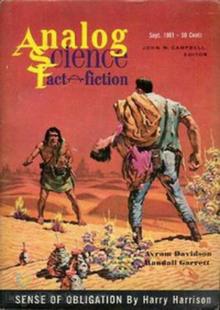 Sense of Obligation
Sense of Obligation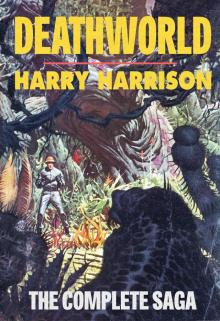 Deathworld: The Complete Saga
Deathworld: The Complete Saga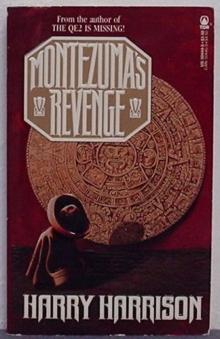 Montezuma's Revenge
Montezuma's Revenge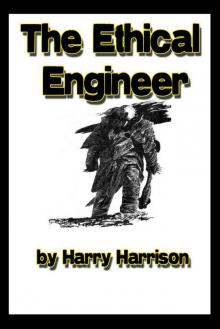 The Ethical Engineer
The Ethical Engineer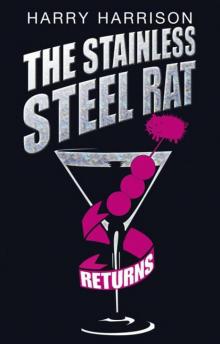 The Stainless Steel Rat Returns
The Stainless Steel Rat Returns The Misplaced Battleship
The Misplaced Battleship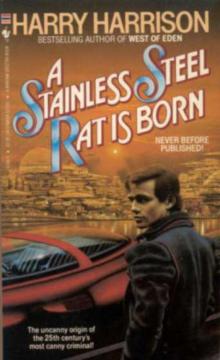 The Stainless Steel Rat is Born
The Stainless Steel Rat is Born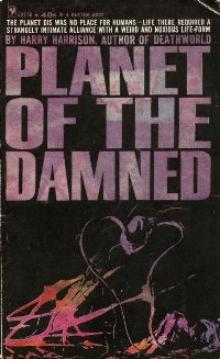 Planet of the Damned bb-1
Planet of the Damned bb-1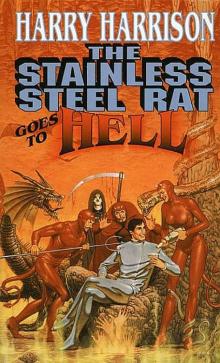 The Stainless Steel Rat Goes to Hell ssr-10
The Stainless Steel Rat Goes to Hell ssr-10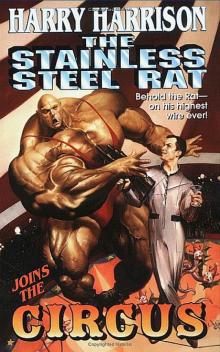 The Stainless Steel Rat Joins the Circus ssr-11
The Stainless Steel Rat Joins the Circus ssr-11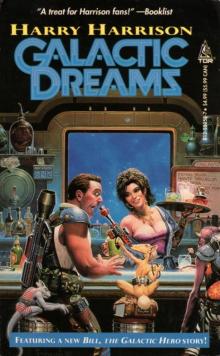 Galactic Dreams
Galactic Dreams The Harry Harrison Megapack
The Harry Harrison Megapack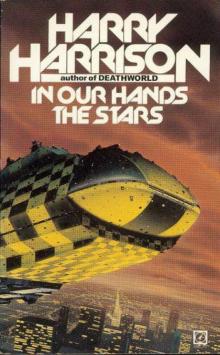 In Our Hands the Stars
In Our Hands the Stars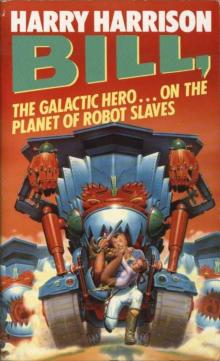 On the Planet of Robot Slaves
On the Planet of Robot Slaves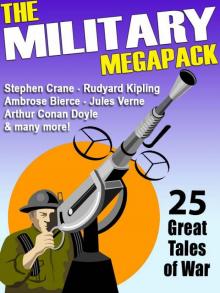 The Military Megapack
The Military Megapack Make Room! Make Room!
Make Room! Make Room! Wheelworld
Wheelworld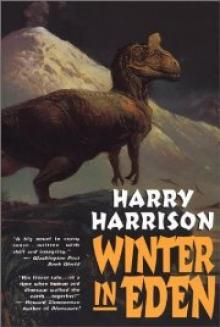 Winter in Eden e-2
Winter in Eden e-2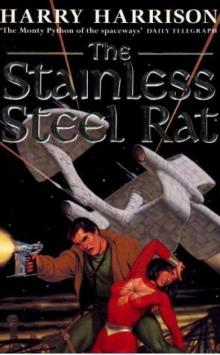 The Stainless Steel Rat
The Stainless Steel Rat The Stainless Steel Rat Goes to Hell
The Stainless Steel Rat Goes to Hell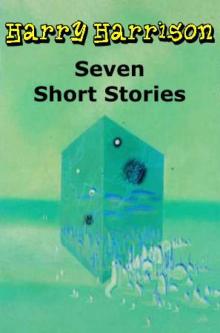 Harry Harrison Short Stoies
Harry Harrison Short Stoies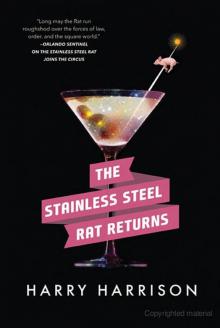 Stainless Steel Rat 11: The Stainless Steel Rat Returns
Stainless Steel Rat 11: The Stainless Steel Rat Returns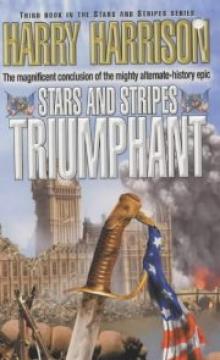 Stars and Stripes Triumphant sas-3
Stars and Stripes Triumphant sas-3 West of Eden
West of Eden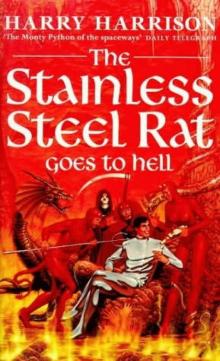 The Stainless Steel Rat Go's To Hell
The Stainless Steel Rat Go's To Hell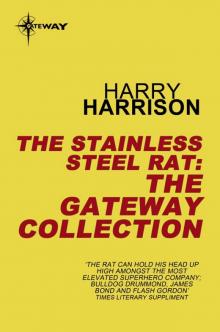 The Stainless Steel Rat eBook Collection
The Stainless Steel Rat eBook Collection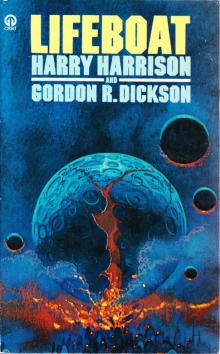 Lifeboat
Lifeboat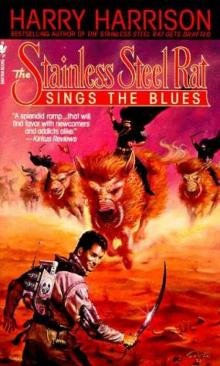 The Stainless Steel Rat Sings the Blues
The Stainless Steel Rat Sings the Blues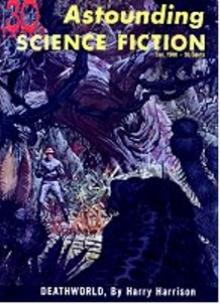 Deathworld tds-1
Deathworld tds-1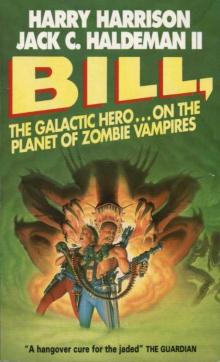 On the Planet of Zombie Vampires
On the Planet of Zombie Vampires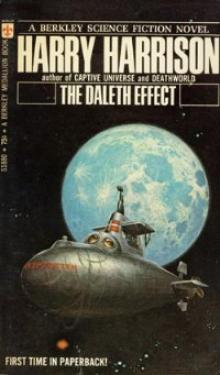 The Daleth Effect
The Daleth Effect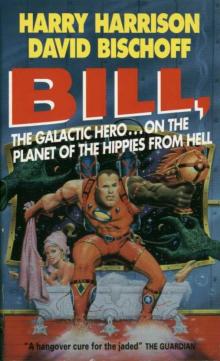 On The Planet Of The Hippies From Hell
On The Planet Of The Hippies From Hell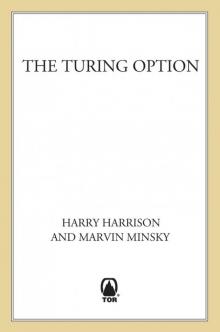 The Turing Option
The Turing Option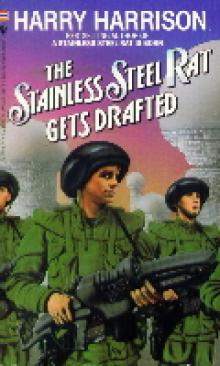 The Stainless Steel Rat Gets Drafted
The Stainless Steel Rat Gets Drafted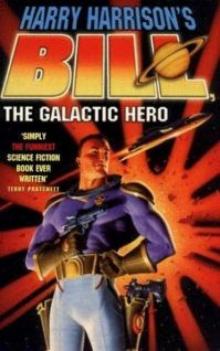 Bill, the Galactic Hero btgh-1
Bill, the Galactic Hero btgh-1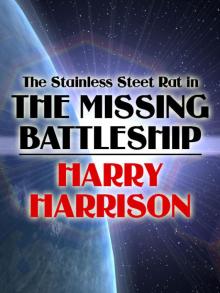 The Stainless Steel Rat in The Missing Battleship
The Stainless Steel Rat in The Missing Battleship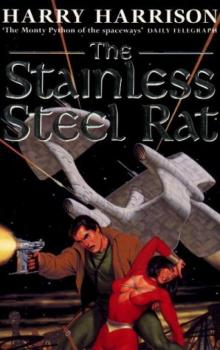 The Stainless Steel Rat ssr-1
The Stainless Steel Rat ssr-1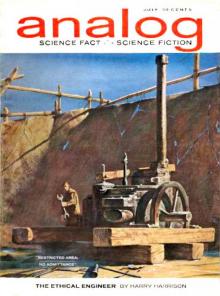 The Ethical Engineer (the deathworld series)
The Ethical Engineer (the deathworld series)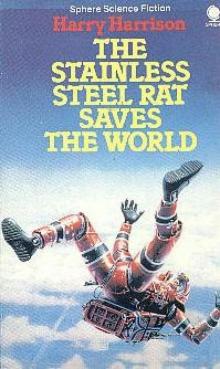 The Stainless Steel Rat Saves the World ssr-3
The Stainless Steel Rat Saves the World ssr-3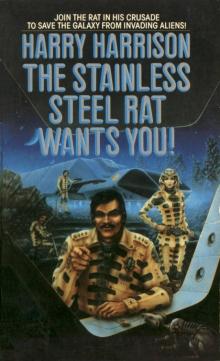 The Stainless Steel Rat Wants You
The Stainless Steel Rat Wants You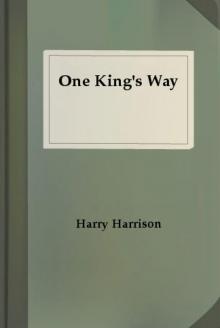 One King's Way thatc-2
One King's Way thatc-2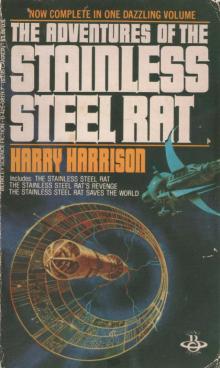 The Stainless Steel Rat Saves The World
The Stainless Steel Rat Saves The World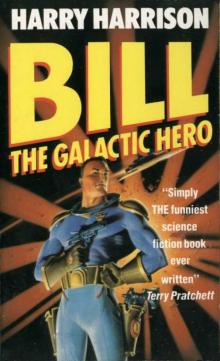 Bill, the Galactic Hero
Bill, the Galactic Hero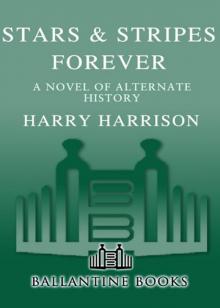 Stars & Stripes Forever
Stars & Stripes Forever Stars and Stripes In Peril sas-2
Stars and Stripes In Peril sas-2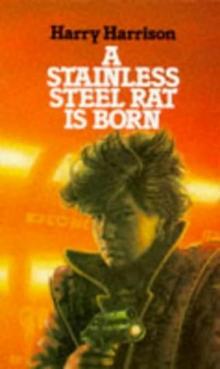 A Stainless Steel Rat Is Born ssr-6
A Stainless Steel Rat Is Born ssr-6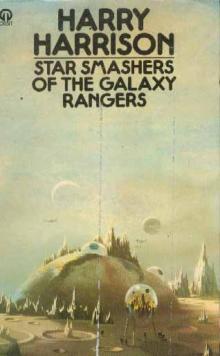 Star Smashers of the Galaxy Rangers
Star Smashers of the Galaxy Rangers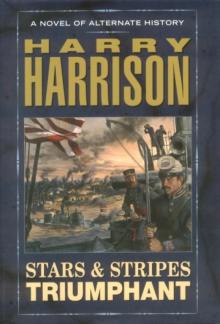 Stars & Stripes Triumphant
Stars & Stripes Triumphant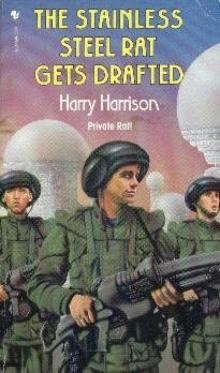 The Stainless Steel Rat Gets Drafted ssr-7
The Stainless Steel Rat Gets Drafted ssr-7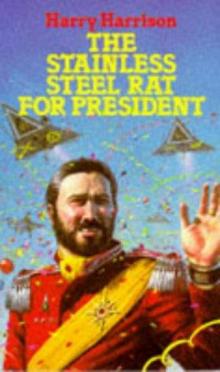 The Stainless Steel Rat for President ssr-5
The Stainless Steel Rat for President ssr-5 The Hammer & the Cross
The Hammer & the Cross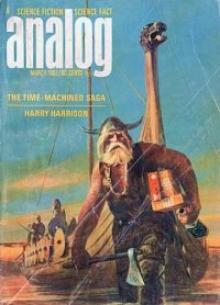 The Technicolor Time Machine
The Technicolor Time Machine The Hammer and The Cross thatc-1
The Hammer and The Cross thatc-1 King and Emperor thatc-3
King and Emperor thatc-3 Return to Eden
Return to Eden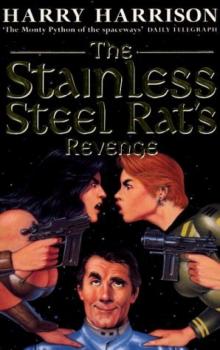 The Stainless Steel Rat’s Revenge ssr-2
The Stainless Steel Rat’s Revenge ssr-2 West of Eden e-1
West of Eden e-1 Return to Eden e-3
Return to Eden e-3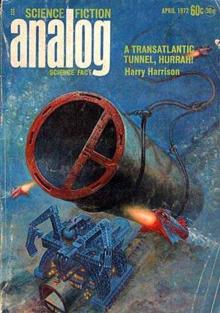 A Transatlantic Tunnel, Hurrah!
A Transatlantic Tunnel, Hurrah! Stars and Stripes Forever sas-1
Stars and Stripes Forever sas-1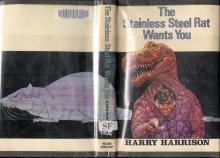 The Stainless Steel Rat Wants You ssr-4
The Stainless Steel Rat Wants You ssr-4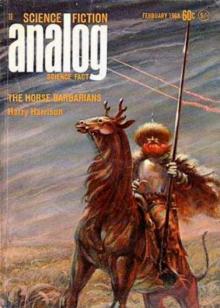 The Horse Barbarians tds-3
The Horse Barbarians tds-3 Planet of the Damned and Other Stories: A Science Fiction Anthology (Five Books in One Volume!)
Planet of the Damned and Other Stories: A Science Fiction Anthology (Five Books in One Volume!)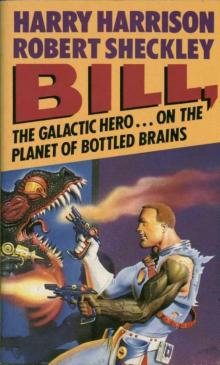 On the Planet of Bottled Brains
On the Planet of Bottled Brains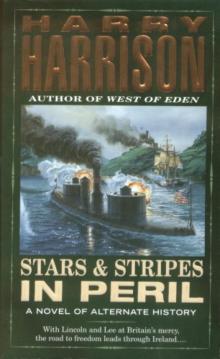 Stars And Stripes In Peril
Stars And Stripes In Peril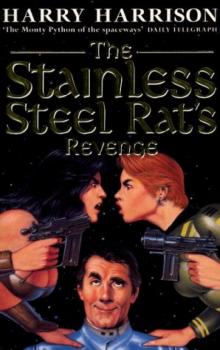 The Stainless Steel Rat's Revenge
The Stainless Steel Rat's Revenge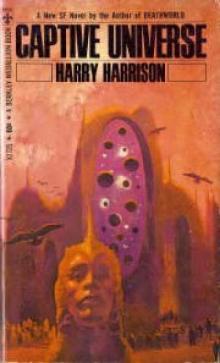 Captive Universe
Captive Universe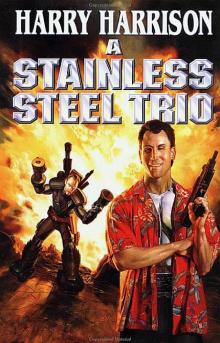 The Stainless Steell Rat Sings the Blues ssr-8
The Stainless Steell Rat Sings the Blues ssr-8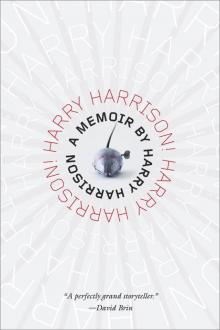 Harry Harrison! Harry Harrison!
Harry Harrison! Harry Harrison! Winter in Eden
Winter in Eden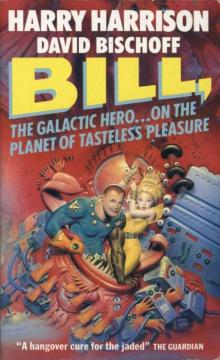 On the Planet of Tasteless Pleasures
On the Planet of Tasteless Pleasures